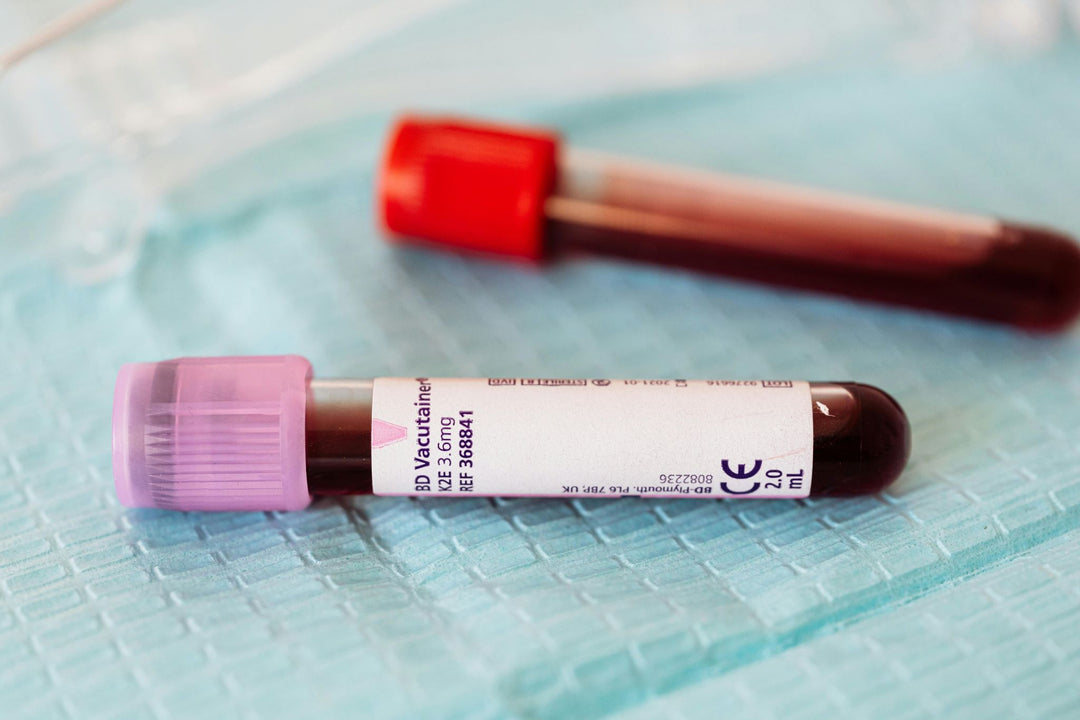How are you down there?
Sexual health – this term sounds cumbersome and somewhat shy. It's a topic people don't like to discuss: after all, it involves things like chlamydia, gonorrhea, and the decision of whether or not to use a condom. However, it's high time to promote awareness and prevention of STIs.
WHAT ARE STI ?
STIs (sexually transmitted infections) is a collective term for sexually transmitted diseases, referring to a group of infections that can be transmitted through sexual contact. There are many different types of STIs transmitted by viruses or bacteria, including chlamydia, gonorrhea (the clap), and syphilis.
The fact that sexual health has not been a major topic in Germany is evident from the state of research: The first nationwide scientific study on sexual health was conducted in 2019 and is currently in the evaluation phase. The GeSiD study (Health and Sexuality in Germany) is carried out by the Institute for Sexual Research at the University Medical Center Hamburg-Eppendorf (UKE).
Preliminary results show that less than half of individuals in committed relationships discuss STIs with their partner before engaging in sexual activity.
HOW DO I CONTRACT STI ?
STIs like chlamydia, gonorrhea, and syphilis are primarily transmitted through unprotected vaginal, anal, or oral sex. Individuals engaging in unprotected sex, whether within or outside a committed relationship, are at an increased risk of infection, as reported by the German Medical Journal in 2017. STIs can be asymptomatic, complicating timely detection and contributing to further spread.
Protection against STIs requires the consistent use of condoms, especially with new partners or in high-risk situations. Regular STI testing, particularly after unprotected sex or changing partners, is advisable. Open conversations about sexual health and shared prevention measures minimize the risk of STI infection.
Understanding the transmission pathways of STIs is crucial for self-protection and protecting others. While sexual intercourse can be intimate, it requires responsible actions to maintain sexual health.
EDUCATION IS A GENERATIONAL ISSUE
Are young people less informed and less responsible? According to the initial results of the study, this isn't necessarily true: In the age group of 18 to 25-year-olds, over 40% of respondents discuss STIs like chlamydia or gonorrhea. Contraception is also a more significant topic among the younger population.
According to the study, age significantly influences awareness of sexually transmitted infections (STIs): Generally, younger age groups (18 to 35-year-olds) are much better informed about many STIs than older individuals. Approximately 20% of 18 to 35-year-olds could spontaneously name chlamydia, whereas among 66 to 75-year-olds, it was only 3%.

Talking about it – both young and old find it challenging.
Although STIs should be an important topic for sexually active individuals of all ages, there seems to be a particular reluctance, especially when it comes to conversations with healthcare professionals. According to the GeSiD study, only a minority of individuals have ever discussed HIV/AIDS, chlamydia, gonorrhea, or other sexually transmitted infections (STIs) with a doctor. This holds true across generations, with an additional difference between genders: younger individuals and women are more likely to discuss STIs with their doctors than older individuals and men.
OPEN COMMUNICATION AND REGULAR TESTING
It's crucial to be aware of STIs and their risks, irrespective of age or gender. Open communication, regular testing, and safe sexual practices are key components to curb the spread of STIs and protect sexual health. Remember that many STIs often progress without symptoms, making preventive measures crucial. Protect your health and that of your partners by acting responsibly and getting tested for STIs regularly.
You can find an overview of our STI tests here.
Sources: Infoblätter-GeSiD.pdf Study - GeSiD Ausgabe_A (stiftung-gssg.org) Chlamydia - Symptoms, Course, Diagnosis & Treatment | roche.de



















